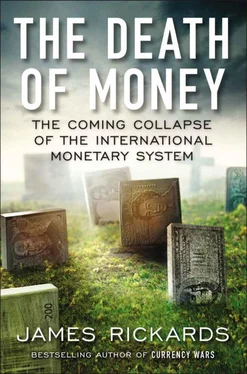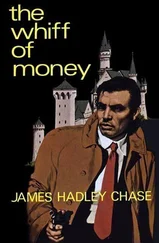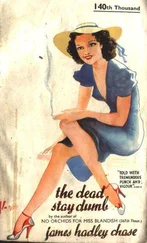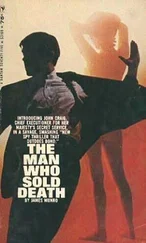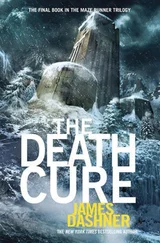Mulheren was expert in options trading and the mathematical connections between the prices of options and the prices of the underlying stocks on which the options were written. He was also a seasoned trader in takeover stocks and knew that deal information was often leaked in advance, an open invitation to insider trading. No one knew more about the linkage between insider trading and telltale price signals than Mulheren.
When we met at Langley, Mulheren was CEO of Bear Wagner, one of seven New York Stock Exchange specialist firms at the time. Recently, specialist firms have faded in importance, but on 9/11 they were the most important link between buyers and sellers. Their job was to make a market and stabilize prices. Specialists used options markets to lay off the risk they took in their market making. They were a crucial link between New York stock trading and Chicago options trading.
Mulheren’s firm was the designated market maker in American Airlines stock at the time of the 9/11 attacks. When the planes hit the twin towers, Mulheren saw the smoke and flames from his office near the World Trade Center and understood immediately what had happened. While others speculated about a “small plane, off-course,” Mulheren furiously sold S&P 500 futures. In the ninety minutes between the time of the attack and the time the futures exchange closed, Mulheren made $7 million shorting stocks. He later donated all the gains to charity.
Mulheren was an eyewitness: he watched both the unfolding of the 9/11 attack and the insider trading that preceded it. His presence at Langley in 2003 was part of a CIA project whose roots reached back to a time before the attack itself.
September 5, 2001, was the day Osama bin Laden learned that the attacks on New York and Washington would take place on 9/11. The countdown to terror had begun. There were four trading days left before the streets around the New York Stock Exchange would be choked with death and debris. Terrorist traders with inside information on the attack had only those few days to execute strategies to profit from the terror. Insider trading on advance knowledge of the 9/11 plot was in full swing by September 6.
Bin Laden was financially sophisticated, having been raised in one of the wealthiest families in Saudi Arabia. The other leaders of Al Qaeda, including the 9/11 hijackers, were not drawn from the ranks of the ignorant and impoverished; they were doctors and engineers. Many lived in developed countries such as Germany and the United States. Al Qaeda was financially backed by wealthy Saudis who traded stocks on a regular basis.
Al Qaeda’s familiarity with the workings of the New York Stock Exchange is well known. In an interview with a Pakistani journalist just weeks after the 9/11 attacks, Bin Laden made the following comments, which show how closely he drew the connection between terror and trading:
I say the events that happened on Tuesday 11th September on New York and Washington, that is truly a great event in all measures…. And if the fall of the towers… was an event that was huge, then consider the events that followed it… let us talk about the economic claims which are still continuing….
The losses on the Wall Street Market reached 16%. They said that this number is a record, which has never happened since the opening of the market more than 230 years ago…. The gross amount that is traded in that market reaches 4 trillion dollars. So if we multiply 16% with $4 trillion to find out the loss that affected the stocks, it reaches $640 billion of losses from stocks, with Allah’s grace.
American Airlines and United Airlines, the operators of the four flights that were hijacked on 9/11, are public companies whose stock is traded on the New York Stock Exchange. In 2001 American Airlines traded with the ticker symbol AMR, and United Airlines with the ticker UAL.
An investigator looking for evidence of insider trading usually starts with the options markets, closely linked to the stock market. Decades of insider trading cases have shown that options are the insider trader’s tool of choice. The reason is obvious: options offer much greater leverage for the same amount of cash than regular stock trading. What makes sense for Wall Street crooks also makes sense for terrorists. When one is betting on a sure thing, leverage amplifies the expected profits, and the terrorists were betting on a sure thing—the panic that would follow their attack.
While the operational details of the 9/11 terror attacks were known in advance to only a small cadre of operatives, the coming of an attack on September 11, 2001, was known to a larger circle. This group included immediate associates of the hijackers, housemates, and financial backers, as well as family and friends. Those who learned of the coming attacks from the terrorists told others, and the information spread through a social network in much the same way a video goes viral.
Advance knowledge of an attack communicated in social networks does not help intelligence agencies unless the messages are intercepted. Interception presents challenges both in directing collection resources at the right channels and in separating signals from noise. But at least one channel was blinking red before 9/11, telling the world that disastrous events involving airlines were imminent. That channel was the pinnacle of the U.S. financial establishment—the New York Stock Exchange.
As the terror clock ticked away, market signals rolled in like a tsunami. A normal ratio of bets that a stock will fall to bets it will rise is 1 to 1. On September 6 and 7, option bets that United Airlines stock would fall outnumbered bets it would rise by 12 to 1. Exchanges were closed on September 8 and 9 for the weekend. The last trading session before the attack was September 10, and that day option bets that American Airlines stock would fall outnumbered bets it would rise by 6 to 1. On September 11, 2001, United Airlines and American Airlines flights struck the World Trade Center and Pentagon. The first trading day after the attacks, United Airlines stock fell 43 percent and American Airlines stock fell 40 percent from where they had last closed. Thousands of Americans were dead. The options traders had made millions.
One-sided trading, involving more bearish than bullish bets of the kind seen just prior to 9/11, would not be unusual if there were negative news about the stocks. But there was no news on airlines on those days. The stocks of other major airlines, such as Southwest and US Airways, did not exhibit the massively bearish trading that affected American and United.
All that appeared was a huge one-way bet on a decline in the stock prices of American and United Airlines in the last four trading days before 9/11. Seasoned traders and sophisticated computer programs recognize this pattern for what it is—insider trading in advance of adverse news. Only the terrorists themselves and their social network knew that the news would be the most deadly terrorist attack in U.S. history.
The trading records are not the only evidence of a terrorist connection to insider trading in advance of the attacks. Yet notwithstanding such evidence, the official 9/11 Commission concluded:
Exhaustive investigations by the Securities and Exchange Commission, FBI, and other agencies have uncovered no evidence that anyone with advance knowledge of the attacks profited through securities transactions.
This language used in the 9/11 Commission Report is a lawyer’s dodge. Saying that agencies uncovered no evidence does not mean there is no evidence, merely that they failed to find it. The conclusion that no one profited does not mean that transactions did not take place, merely that the profits could not be ascertained. Perhaps the perpetrators failed to collect their winnings, like a bank robber who drops a satchel of stolen cash in flight. The inside terrorist traders may not have known the exchange would be closed for days after the attack, making it impossible to settle trades and collect winnings.
Читать дальше
